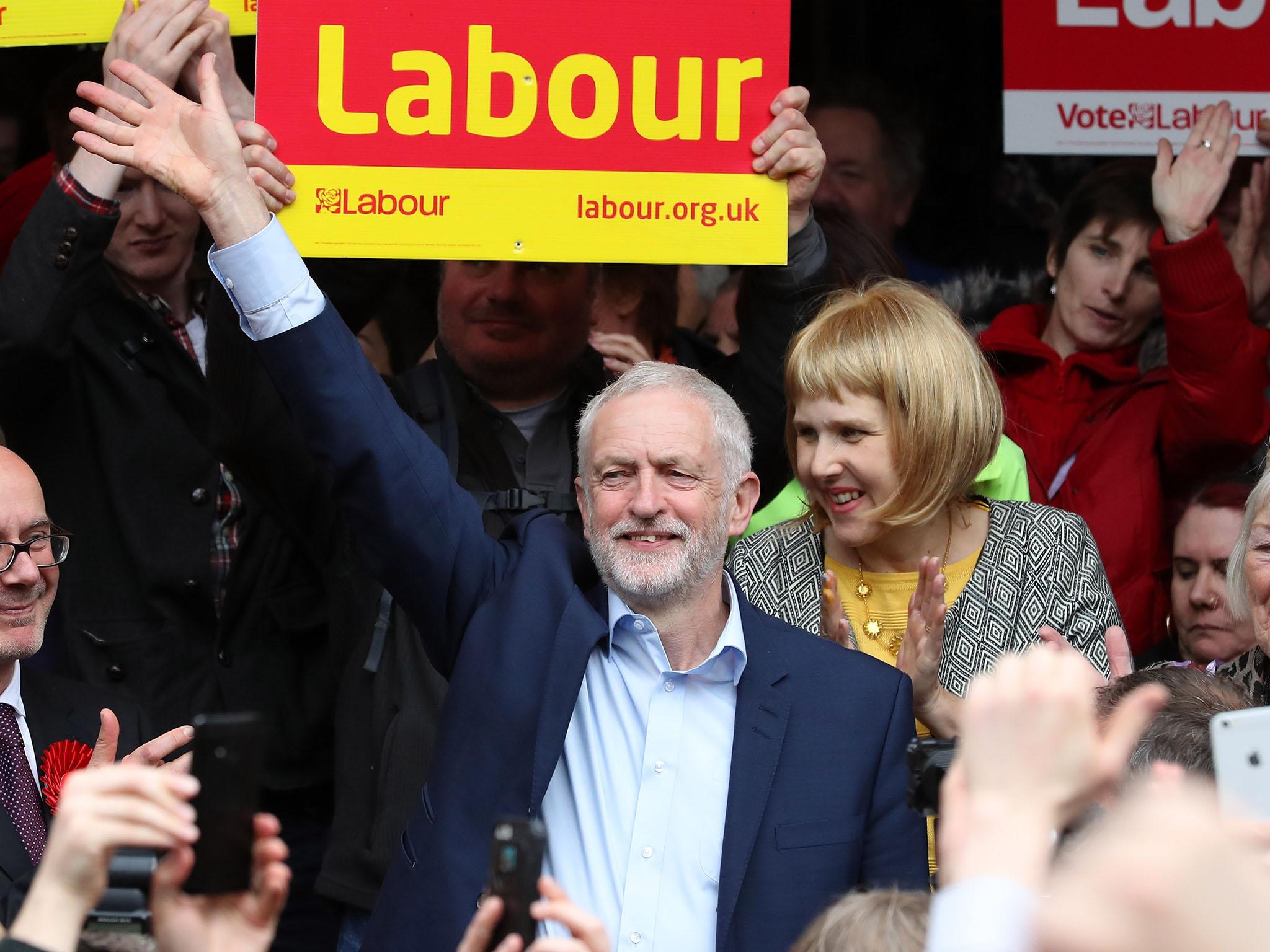Labour won't lose this election because its policies are too left wing
In 2015, Ed Miliband’s ‘left-wing policies’ proved popular with voters. His defeat was instead caused by the lack of a cohesive narrative


Your support helps us to tell the story
This election is still a dead heat, according to most polls. In a fight with such wafer-thin margins, we need reporters on the ground talking to the people Trump and Harris are courting. Your support allows us to keep sending journalists to the story.
The Independent is trusted by 27 million Americans from across the entire political spectrum every month. Unlike many other quality news outlets, we choose not to lock you out of our reporting and analysis with paywalls. But quality journalism must still be paid for.
Help us keep bring these critical stories to light. Your support makes all the difference.
Pointing across the despatch box in 2013 at his political rival, David Cameron derided Ed Miliband for wanting to live in a “Marxist universe” with his “gimmick” to freeze energy bills for Britain’s consumers, fed up with rip-off gas and electric bills. Nearly four years later, Downing Street’s new occupant, Theresa May, appears to be on the cusp of bringing Cameron’s vision of a communist revolution to fruition. Using a campaign rally she announced this morning, if elected in four weeks’ time, the Conservatives – or “Theresa May’s team” as she has rebranded the party – will cap energy prices.
Miliband’s policy was popular so it is no surprise it has been imitated by May. At the time, it had the support of 63 per cent of the public. It would be fair to say the policy did not contribute to his punishing electoral defeat almost two years later.
It’s an important point as, in 31 days’ time, opponents of Jeremy Corbyn will attempt to spin his policy agenda as a failure if he loses the election. In the hours, days and weeks following a bruising general election defeat a forensic post-mortem will begin – politicians naval-gazing in an attempt understand why the Corbyn project failed. Allies of the leader, should he decide to throw in the towel on 9 June, which is not inevitable, will place blame on the media for vilifying the leader. They will criticise politicians from the so-called moderate wing of Labour’s fragile coalition of MPs for constantly sniping and briefing against Corbyn, creating the image of a divided party in the public’s mind.
Adversaries will pin blame on the incompetence of Corbyn and his many imperfections. Others will look to the Brexit vote, the torturous position it has placed the party in for the past 11 months, and the extent to which the public have disregarded their historic political allegiances in favour of their opinion on Brussels.
But a trouncing at the ballot box – as per predictions and forecasts from psephologists – will not be rooted in the left-wing policies put forward by the party’s leadership. When polled, many have extraordinary support among the general public, including free school meals for primary school children, forcing big businesses to publish their tax returns, a £10-an-hour minimum wage, increasing the top rate of tax for the highest earners in Britain, and introducing a pay ratio. One poll for The Independent found that raising the minimum wage, and the rate of tax to 50p from 45p, had the support of 71 per cent and 62 per cent of respondents respectively.
The party’s pledge to extend free school meals to all primary school children – funded by charging VAT on private schools – also had the support of 53 per cent of the public.
Margaret Beckett’s post-mortem review of Miliband’s crushing defeat at the last general election found that some of his “left-wing policies”, notably the mansion tax, were the most popular, with individual policies polling well. The issue, she added, was rather the lack of a consistent, cohesive narrative.
Six months later a second piece of research by academics at the University of Oxford found that while immigration, welfare and Miliband’s leadership all contributed to the party’s unexpected defeat two years ago, it was more about perceived competence and rhetoric than policy. The anti-austerity message, the authors added, even led to some gains in England. They found no evidence that a shift to the left resulted in voters turning their backs on the party at the ballot box. “In fact, on a left-right spectrum, the public consistently see Labour as closer to their own views than the Conservative Party,” the report, published last year, added.
Take the Shadow Chancellor’s announcement on Sunday. If elected, Labour, John McDonnell announced, will increase income tax for those earning more than £80,000. Those earning below this – or 95 per cent of the population – will be safeguarded, he added. It is likely to chime with voters in Labour’s traditional heartlands.
But if the party is defeated at the general election in 31 days’ time, blame will undoubtedly be pinned to the left. Corbyn’s allies will likely be cast aside to the wilderness of Parliament’s backbenches for a generation should he decide to call time on his leadership. The MPs that survive the election are unlikely to provide a left-wing candidate with the 15 per cent support needed from the Parliamentary Labour Party to be a contender in the leadership race. The party will inevitably shift to the right, with the left devoid of any political capital.
What will follow will likely resemble the vacuous, uninspiring, alternative offerings of the party’s leadership contest in 2015 alongside dull soundbites. But defeat should not be used as a rejection of the left-wing policies and their considerable support among the British public. It would not be surprising if some of the policies find themselves distributed to the British public through their letterboxes in May’s manifesto for a second term in June 2022.
Join our commenting forum
Join thought-provoking conversations, follow other Independent readers and see their replies
Comments